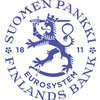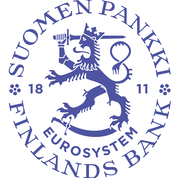Resilience must be strengthened among borrowers, banks and payment systems

Russia’s invasion has brought immeasurable human suffering and destruction to Ukraine and its people. The war’s far-reaching economic and political effects will also be felt in the financial system. The extent of the drag on economic growth will depend on the war’s duration and scale.
Finland’s financial system has remained stable. However, financial stability risks have grown since the start of the war. The weakened economic outlook, the increase in energy prices, the anticipated rise in interest rates and the possibility that finance will be less easily available will all serve to exacerbate the financial stability risks. The resilience of the entire financial system – borrowers, banks and payment systems – should be strengthened.
Household indebtedness has long been on the rise and is at a record high. New housing loans are bigger than before and increasingly often they are longer than the traditional term of 25 years. The high level of household indebtedness is a risk to the stability of the financial system. ‘Households taking a loan should be sure that their ability to repay it can withstand a rise in interest rates, higher household outgoings and any uncertainty in the jobs market,’ says Marja Nykänen, Deputy Governor of the Bank of Finland.
New macroprudential instruments are being planned for curbing debt accumulation among Finnish households. The Government’s draft proposal puts forward the idea of duration limits for housing loans and loans to housing companies, and a repayment obligation and loan cap for housing company loans. The planned reforms are necessary and merit support. Nevertheless, the instruments are still set to remain insufficient, as the reforms do not do enough to curb the growth in indebtedness. Alongside these steps, a ceiling on debt or debt-servicing costs in relation to the income of the borrower would also be needed.
The banking sector’s vulnerabilities are also exacerbated by the sector’s substantial size and concentration. Furthermore, Finland’s financial stability may be threatened by events external to the financial system – fresh examples are the war and the pandemic. ‘Vulnerabilities require banks to have good resilience in all circumstances. The authorities should be better able than they presently are to ensure that banks have adequate buffers to cope with unforeseen eventualities. Reinforcing banks’ capital buffers should be possible in more varied ways than currently,’ says Deputy Governor Nykänen.
The prevailing uncertainty also brings other threats. More determined preparedness for cyber threats and payment and settlement system vulnerabilities is needed. Making payments is one of society’s vital functions. “The financial sector is part of the chain ensuring national security of supply, and this must not be allowed to break, even in emergencies. If the use of systems is prevented for some reason, it is vital for the functioning of society that payments are managed in some other way,” says Nykänen. The design, construction and testing of smoothly functioning backup systems requires more active collaboration between the industry and the authorities.
Keywords
Images
Links
About Suomen Pankki
The Bank of Finland is the national monetary authority and central bank of Finland. At the same time, it is also a part of the Eurosystem, which is responsible for monetary policy and other central bank tasks in the euro area and administers use of the world’s second largest currency – the euro.
Subscribe to releases from Suomen Pankki
Subscribe to all the latest releases from Suomen Pankki by registering your e-mail address below. You can unsubscribe at any time.
Latest releases from Suomen Pankki
Eurosystemets penningpolitiska beslut18.12.2025 15:23:32 EET | Beslut
ECB-rådet beslutar om penningpolitiken i euroområdet. ECB-rådet beslutade idag att hålla de tre styrräntorna oförändrade.
EKP:n rahapoliittisia päätöksiä18.12.2025 15:23:32 EET | Päätös
EKP:n neuvosto päättää euroalueen rahapolitiikasta. EKP:n neuvosto päätti tänään pitää EKP:n kolme ohjauskorkoa ennallaan.
Kutsu medialle: Suomen Pankin tiedotustilaisuus 19.12.2025 Suomen talouden näkymistä17.12.2025 09:00:00 EET | Kutsu
Elpyykö Suomen talous? Miten kauppasota ja maailmantilanteeseen liittyvä epävarmuus vaikuttaa talouskehitykseemme? Mitkä ovat julkisen talouden näkymät?
Aleksi Grym blir avdelningschef för Finlands Banks betalningssystemsavdelning16.12.2025 16:42:15 EET | Pressmeddelande
Pol.lic., ekon. mag. Aleksi Grym har utnämnts till avdelningschef för Finlands Banks betalningssystemsavdelning från och med den 1 mars 2026. Utnämningen gäller för en period på fem år.
Aleksi Grym maksujärjestelmät-osaston osastopäälliköksi16.12.2025 16:42:15 EET | Tiedote
Suomen Pankin maksujärjestelmät-osaston osastopäälliköksi on nimitetty VTL, KTM Aleksi Grym. Nimitys on tehty viiden vuoden määräajaksi 1.3.2026 alkaen.
In our pressroom you can read all our latest releases, find our press contacts, images, documents and other relevant information about us.
Visit our pressroom

